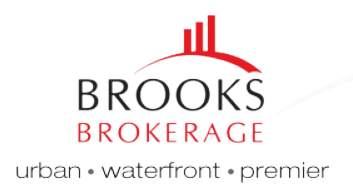Frequently Asked Questions
A mortgage broker is a licensed individual that works with many banks and lending institutions – versus just one – and is therefore able to find the best mortgage or loan vehicle for your situation. A mortgage broker is not a loan officer, an individual who works for one bank or other lending institution, and is therefore able to offer unbiased advice. You should note that anyone can be called a “loan officer” whereas a mortgage broker must carry a license and adhere to federal and state regulations.
This is a common misconception. However, it’s no secret how the process works. Typically, a mortgage broker works with banks and credit unions across the state or even nationwide. Due to these relationships, mortgage brokers can quote wholesale rates that you don’t get when you call the bank yourself.
For example, a bank may advertise a rate of 5% on a 30-year fixed loan. A broker, on the other hand, can quote 4.75% on the same loan – with the broker’s “commission” being the quarter percent difference, which the bank pays to the broker, not you.
Brokers must show what they make on the Good Faith Estimate, the Broker Compensation Agreement, and the Attorney General Disclosure.
Federal law stipulates that a bank or mortgage broker must provide you with a Good Faith Estimate within three days of applying for a loan. This document is very important as it lists the costs and fees associated with your loan, including taxes, inspections, and title costs. It also lists your loan rate. You should bring the Good Faith Estimate with you to closing to ensure the rate listed on your closing documents matches the rate listed on the Good Faith Estimate. (If it doesn’t, don’t be afraid to walk away from the loan.)
Definitely yes – especially in this market or if you’re purchasing foreclosed properties. Title insurance protects you should you learn after closing that something is amiss with the property’s title. The key word here is “after.”
Let’s say you purchase a property and the sale goes through without a hitch. A few months down the road, you learn, much to your dismay, that the property carries a lien or that someone is laying claim to ownership based on holding title. (This can happen if a property owner splits title among heirs while still alive – it’s a real mess to clean up if the owner dies.)
Title insurance protects you from these and other title problems because it covers the costs to get the title problem fixed – which can sometimes run into the tens of thousands of dollars.
Bottom line – don’t be penny wise and pound foolish. Purchase title insurance.
Yes, you are allowed to bring your own real estate attorney to your closing. Don’t assume that the attorney supplied by the bank or mortgage company is necessarily looking out for your best interests.
Yes, you have the right walk away at signing if you feel you’re being pressured into signing for a loan that’s different from what you were presented on the Good Faith Estimate or if the rate you were quoted is different from the rate shown in the closing documents.
Don’t be afraid to ask as many questions as you need during the closing process – it’s your right and your money!
Title V is the Massachusetts regulation covering septic systems – and it’s something you should know about whether you’re buying or selling. That’s because approximately 80% of properties in the state come with a septic system (meaning the property’s plumbing does not drain into a town or city sewer system).
Title V regulations stipulate that your septic system be in good working order (as certified by an inspector) before you sell a property. If it’s not working properly, you must pay to have the system repaired or replaced.
As a buyer, you want to ensure the property you’re buying has a septic system in good working order. Common indications that something is wrong include spongy grass, rings on the lawn, and smells.
